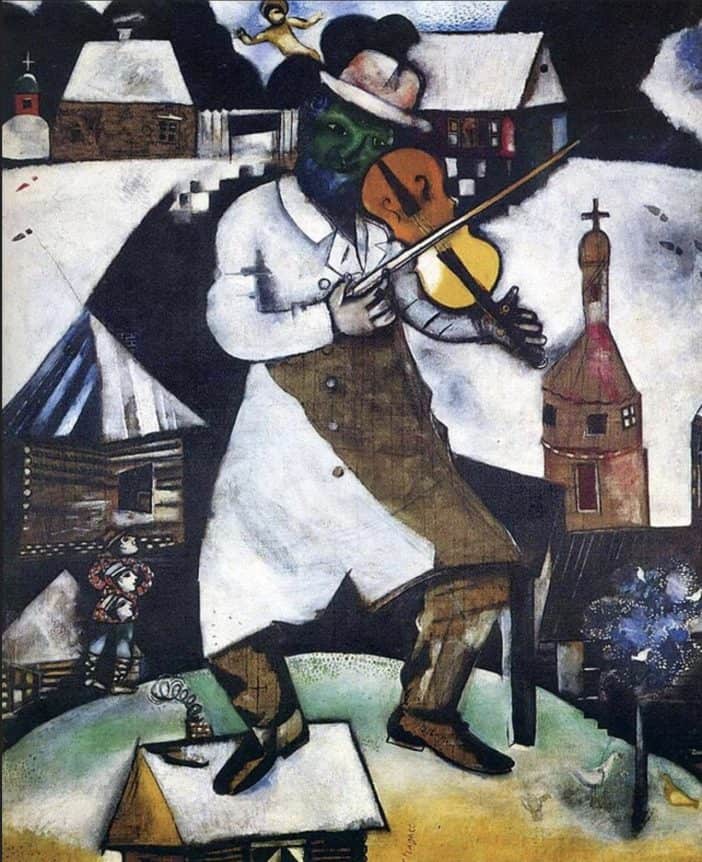
In so many ways, the challenges of thoughtful Weimar Jews mirror our own. Familiarize yourselves with these, and you’ll begin to understand what makes us tick at 36 Learning Matters.
- Israel’s experience at Sinai is no delusion. Revelation happens where the witness lets himself be told what the voice speaking wished to say to him. To be a witness but nevertheless bracket the giver’s giving is theft. Sinai illustrates that the world is filled with signifiers and they address you. (Paraphrase of Martin Buber, “People Today and the Hebrew Bible,” (1926) Scripture and Translation, 21.)
- And, yet, there is no trans-personal meaning to life (e.g. learning how to die (Socrates), or becoming a man of virtue (Aristotle), or serving God (Rabbi Israel Salanter, Founder of the Musar Movement).
- Franz Rosenzweig is good with a pun and and even better when the pun comes with a deeply moral point: he affirms that life has “no end” and therefore Jewish education must have “no end.” But do not fear: For Rosenzweig, life, once we stop looking for a singular transpersonal meaning, is more meaningful, not less. (Bildung und kein Ende; Wünsche zum jüdischen Bildungsproblemdes Augenblicks insbesonder zu Volkschochschulfrage 1920).
- Replying to Walter Benjamin who held that under modernity’s sway, life becomes entirely vacant of meaning, Gershom Scholem—relying on his extensive readings of Kafka—insists, “No! Not right, because the evacuation of meaning, experienced under such conditions, is itself a revelation. (Gershom Scholem in various personal letters to Benjamin circa 1920 – 1940. Many such letters are now translated into English and widely available).
- According to Scholem, Kafka’s stories are fictional representations of a modern, perhaps the quintessential modern problem, the absence of God, experienced unmediated, together with societal expectations that transpersonal meanings will continue to be read out of religious tradition and transmitted authoritatively as such. (Biale, Kabbalah and Counterhistory, 1979).
- Oh the difficulties this creates! Philosophers, and soon after, many cultural elites began to refuse claims to “unmediated” encounter with God circa 1854. Scholem contends that, even if we somehow manage to carve out an exception for Moses’ encounter with God on Mt. Sinai, every religious experience since Sinai has been mediated by a human subject. Matan Torah/Torah from Heaven is the experience of the voice of God rather than the experience of God.” (Gershom Scholem, “Revelation and Tradition as Religious Categories,” in The Messianic Idea in Judaism and Other Essays, 1971, 292)
- Martin Buber answering the question, what is the Hebrew Bible?, writes: “Do we mean a book? We mean the Voice. Do we mean that people should learn to read it? We mean that people should learn to hear it.” (Buber, “People Today and the Hebrew Bible,” in Scripture and Translation, 21)
- What do Rosenzweig and Heidegger have in common? Among other things, a style that Peter Eli Gordon calls philosophical expressivism. For its proponents, this movement was meant to replace idealism, as the latter seemed often to miss in religion and theology the phenomena that mattered most. (See Peter Gordon, Rosenzweig and Heidegger, 2005, xxviii)
- Philosophical expressivists, as Gordon imagines them, are torn between nostalgia for a perhaps never-actually-experienced intimacy with their origins and the demanding scruples of urbane people about taking on metaphysical commitments, whether God, Spirit, or Reason.
- Perhaps we should grapple with the merits and the demerits of becoming philosophical expressivists by imagining woodworkers making expressionist woodcuts, artifacts both archaic and modern. (Compare Gordon, Rosenzweig and Heidegger, xxviii)
- How common is this kind of quest for origin—and is it not in fact virtually universal? To what extent are critical-takes on Rosenzweig, when they seem to reflect some future rather than some past as their polestar, themselves embedded in a quest for origins as well?
- Heidegger and Rosenzweig both try to make their philosophical prose into useful instruments for peers whom they regard as having become painfully disoriented by the conditions of their lives. Neither think that they are offering a bridge to the archaic past, or a nostalgic way out of the modern predicament. (But compare Gordon, Rosenzweig and Heidegger, 5)
- “Romantic ideology limited if it did not undermine” some of the central claims Buber and Rosenzweig made on behalf of their expressive-modernist approach to translating the Bible, says Abigail Gillman in her magisterial study of the Bible in German translation. Gillman’s charge resounds with the distaste of several generations of Buber-Rosenzweig detractors, beginning with Siegfried Krakauer’s 1925 review. (See Abigail Gillman, A History of German Jewish Bible Translation.)
- Why is “Romantic” the adjectival cudgel with which these scholars have attacked the Buber-Rosenzweig project? Let me add, as a descriptive claim, it is beyond reproach: one merely needs to take note of Buber and Rosenzweig’s reading diet (e.g. Hölderlin, Schleiermacher, Schelling etc.). As a critique of their translation project, however, it is a judgement sorely in need of a theory of the Romantic. Has that work really been done?
- Siegfried Krakauer’s 1925 review of the first edition of the Buber-Rosenzweig translation kicks off a left-oriented reception of the Buber-Rosenzweig Bible—Krakauer famously became engrossed in the Marxist critique of capitalism at that very time—and this reception is rehearsed again by Martin Jay, Peter Gordon and Mara Benjamin, and Gillman, mong others. (See especially Mara Benjamin, The Rosenzweig Bible, 2009.)
- Absent an earnest effort to say what one really means by the slight that such-and-such a translation (or conviction, or woodwork) is objectionably Romantic, it is fair to conclude that the critique of the Buber-Rosenzweig Bible translation, from Siegfried Krakauer to Martin Jay and Mara Benjamin, is overdetermined by some set of judgments and emotions that does not reside entirely on the surface. How else could one explain the vehemence with which the critique is pursued? And how do the much more recent and well-received Hebraicizing translations by Everett Fox and Robert Alter relate to this brouhaha surrounding the Buber-Rosenzweig Bible project? Are they too blemished by a romantic impulse? (For an effort to answer this last question in the affirmative, see Mara Benjamin, “The Tacit Agenda of a Literary Approach to the Bible,” Prooftexts, 27, no. 2, 2007; for a rejoinder to Benjamin, see Benjamin Pollock, “The Conversation of Humanity: Franz Rosenzweig on the Secrets of Biblical Narrative.” Prooftexts 39, no. 3, 2022).
- Is the direction of my questioning in this very blog “romantic”? And if it is, what would ground that judgment and why would it matter?
- How does one make a judgment of origin anyway? (What is the origin of Siegfried Krakauer’s interest in the Hebrew Bible and its translation? What is the origin of Martin Jay’s interest in Krakauer?). Intriguingly, this very question was central to the tradition –- by whatever name you would like to call it –- that animated and antagonized Buber and Rosenzweig. In the language of that tradition, even if I am referred to the verses they translated as evidence of their Romantic zeal, “so bleiben diese doch stumm und blind,” “these verses will remain entirely mute and blind”, if I do not approach them “mit einem Begriffe,” “with a concept”. So would assert the loudest voice in the fin de siè·cle German Jewish philosophical tradition, Hermann Cohen. (See “Introduction Elucidation of the Title and Articulation of the Task,” in Religion of Reason out of the Sources of Judaism, 1918, translated by Simon Kaplan).
Second set of 18 propositions coming in the course of Winter/Spring!
Image: Marc Chagal, Fiddler, 1913, via Wiki Commons
